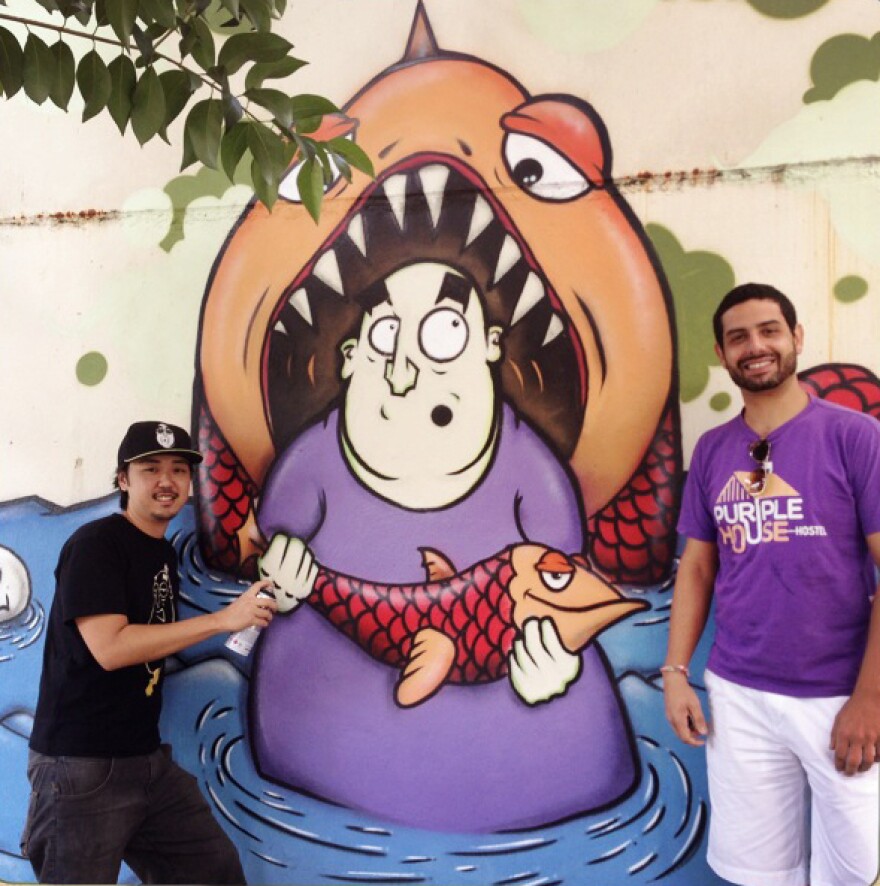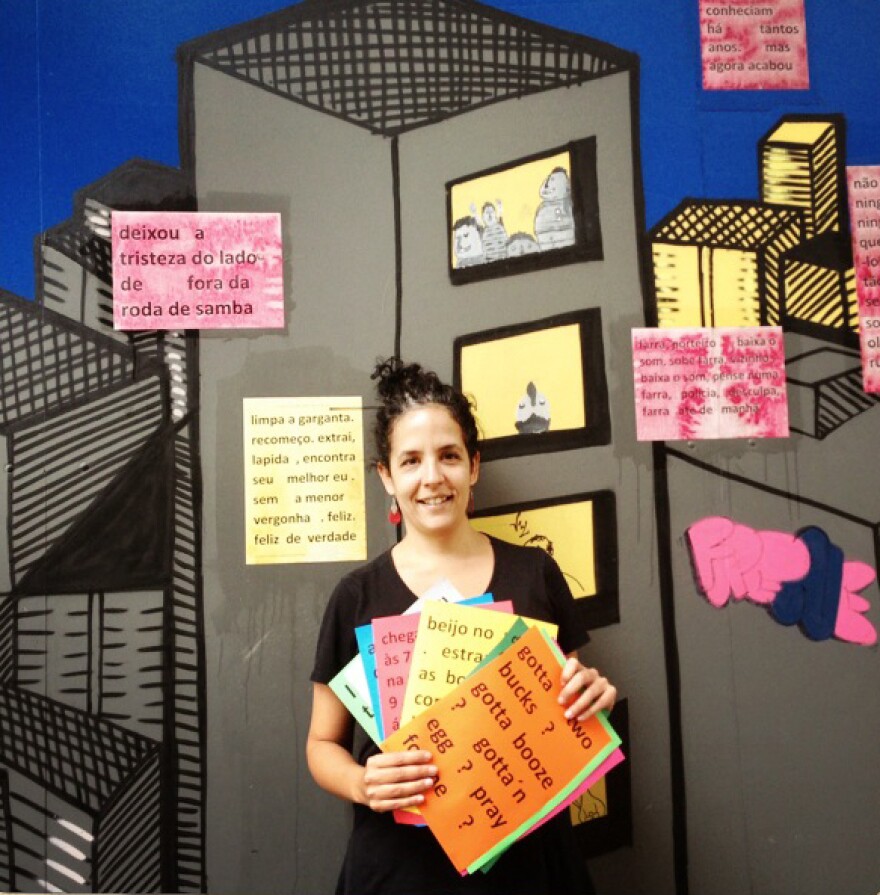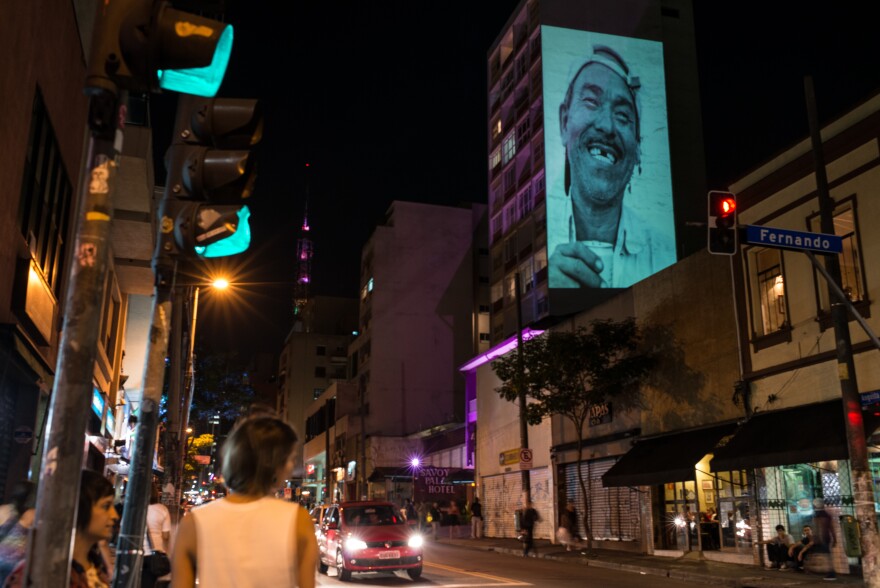It's lunchtime in the heart of Sao Paulo's financial district. Surrounded by tall buildings of cool glass and steel, men and women in suits and business attire walk back and forth busily in Brazil's largest city.
Standing amid the bustle is Leticia Matos — who is, for want of a better word, a crochet artist. She couldn't look more different from the people around her.
Wearing a short-sleeve shirt and covered in bright, quirky tattoos, Matos is at work, too. About a year ago, she says, she got the idea for her project while knitting and crocheting with her friends.

Matos covers trees and street poles with woolen sleeves and small, colorful pompoms. Her works look like whimsical webs of rainbow yarn; the effect is surprising and oddly comforting.
"I want people to have something familiar in the city. Here in Brazil we teach knitting from mother to daughter," Matos says. "When they see my art, they suddenly feel comfortable walking these cold streets. And you can feel better."
Urban landscapes have always inspired art, and Brazil is no exception. A new crop of artists like Matos not only is taking inspiration from Sao Paulo's streets but also is trying to give something back.
Elsewhere in the city, a construction site — a quintessential part of the urban landscape — provides the backdrop for the work of Laura Guimarães, an artist who says she has been inspired by the digital world.
She recites a poem: "He put on his best clothes, even though they weren't of the best quality, pretending elegance, trying not to think of the water seeping into the hole in his shoe."
Behind her, plastered on boards protecting the building site, are dozens of what she calls her microscripts.
"I'm a screenwriter originally, and I was inspired by Twitter to capture a moment, a scene in a few words that would fire people's imagination," she says. "I print them and put them up across the city."
Guimarães has studied the history of street art, and she says that these days, there's a movement under way in Sao Paulo, a teeming metropolis of some 20 million residents.
"When I started, there was almost nothing like this. This is an oppressive city. Some people take three hours to get to work. People don't have time here," she says. "And so you have to put art in front of them, so they have no option but to see it. It's food for the soul."

The newest and the biggest urban art project here is called Color+City, and it has an impressive list of corporate sponsors. The idea is to connect graffiti artists with individuals or business owners who have a wall they want covered with original art.
Artist Guilherme Matsumoto says he saw the website and signed up to say he was available to paint a space. Walter Orsati, owner of the Purple House Hostel, responded.
It was that easy, they say.
A splash of color on an otherwise bland residential street, the mural on the hostel wall depicts a big fish about to eat a man holding a little fish.
"It's like the hunting day," says Matsumoto, who is known on the streets as X Gui X. "Sometimes you are the [hunted] and sometimes you are the hunter."
Orsati says he didn't want to influence the work.
"I told him, make your art, be free to do whatever you want," he says.
Color+City has spread throughout Brazil already; its organizers hope to take it to the rest of world.
Copyright 2021 NPR. To see more, visit https://www.npr.org. 9(MDIxMDkyNjUxMDE0NDY1Njg1NzRiOTRiYQ000))






